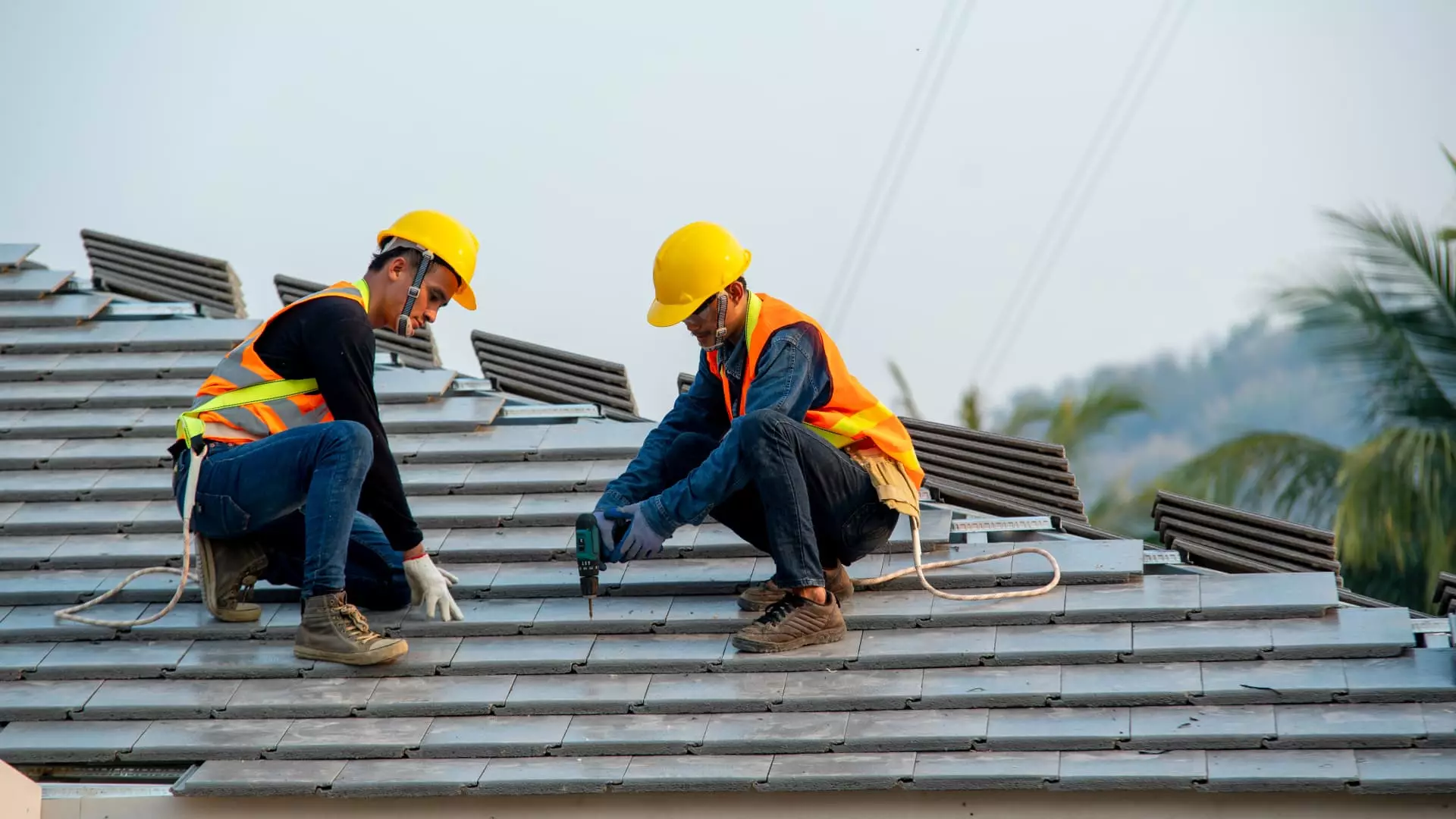Homeownership comes with a plethora of responsibilities, and among them, none is as daunting as home repairs and renovations. The expense associated with fixing or upgrading our homes often drives us to make hasty decisions, particularly when budgets are tight. A recent report by Clever Real Estate reveals a compelling trend: a staggering one in three homeowners is now willing to overlook significant red flags when hiring contractors, such as gaps in experience or a tarnished reputation, all in the name of cost savings. This behavior raises critical questions about the balance between frugality and quality, especially in an industry where the consequences of poor choices can be both financially and emotionally taxing.
According to the survey, homeowners prioritize reputation as the most crucial factor when selecting a contractor, followed closely by experience and cost. Yet, the willingness to compromise on these important criteria speaks to a broader issue: the stress and time constraints that renovations often impose. In a world where speedy repairs are often necessary, particularly after unforeseen disasters like storms, the desire to complete projects quickly can cloud judgment. This is particularly concerning in an environment where the risk of contractor fraud—especially following natural disasters—can surmount the risk of working with less experienced professionals who may be more than capable of delivering quality work.
Experts in the field, including Jamie Dunaway-Seale from Clever Real Estate, warn against the pitfalls of hiring contractors without due diligence. A contractor with a questionable reputation often lacks transparency regarding pricing, may exaggerate their capabilities, or worse, may leave projects incomplete. Moreover, Angie Hicks from Angi emphasizes preferring a novice with potential rather than someone whose track record raises alarms. This perspective sheds light on an essential truth: building trust and maintaining a solid reputation should take precedence over immediate monetary savings.
The context of natural disasters can exacerbate the risks homeowners face. Loretta Worters of the Insurance Information Institute highlights that disaster aftermaths often attract unscrupulous contractors who look to exploit distressed homeowners. These individuals may promise repairs but vanish with prepaid funds, leading to a devastating double jeopardy for victims who are already grappling with loss. The Justice Department has stepped in to warn consumers about the heightened risk of fraud post-disaster, underscoring the necessity for vigilance in these critical times.
Potential homeowners must approach the search for skilled contractors with heightened caution, especially during moments of crisis. Such vigilance and preparedness are essential for protecting oneself from further loss, and it goes a long way in fostering legitimate business practices within the contractor community.
To mitigate the risk of hiring an unreliable contractor, homeowners should adopt systematic strategies. Firstly, seek recommendations from trusted sources; friends or family who have had positive experiences can guide you toward credible options. Once potential candidates have been identified, utilize online reviews and social media to gauge the reputation and performance of the contracting firms you are considering.
Next, consider the importance of references. A reputable contractor should have no qualms about asking previous clients for feedback and testimonials. If they resist providing references, it might be indicative of past unsatisfactory results or conflicts. Verifying a contractor’s credentials—such as insurance and licensing—is non-negotiable. Check state regulations regarding licensing, as having this information can lend further credibility and peace of mind regarding the contractor’s capability to complete the job.
The financial aspect of hiring a contractor should not be overlooked. Secure a detailed written estimate, outlining payment schedules and specific project timelines. Experts recommend that upfront payments do not exceed 10-20% of the total project cost. More importantly, obtaining multiple quotes can provide clarity regarding fair pricing and help homeowners make more informed decisions.
Ultimately, maintaining a cautious approach, analyzing every detail, and seeking validation are crucial steps in the contractor selection process. In a market filled with options ranging from reputable tradespeople to potential fraudsters, taking the necessary time and effort to validate a contractor’s credentials and past work can save homeowners from costly mistakes that might emerge down the road.
While the instinct to save money on home repairs is understandable, the potential pitfalls of hiring the wrong contractor can lead to more significant expenses and prolonged distress. By prioritizing reputation, seeking valid references, and being diligent in researching, homeowners can navigate the complex contractor landscape more successfully. Armed with the right knowledge, consumers can make informed choices that ultimately enhance the value and safety of their homes while mitigating risks associated with unqualified professionals.

